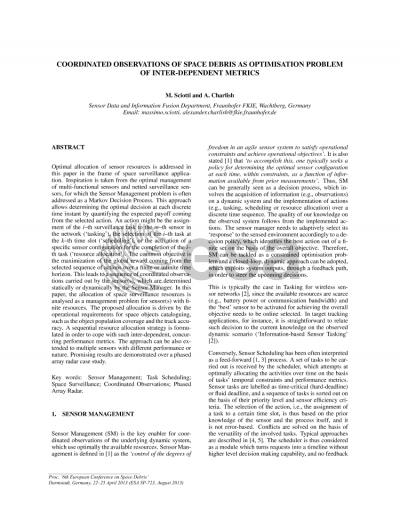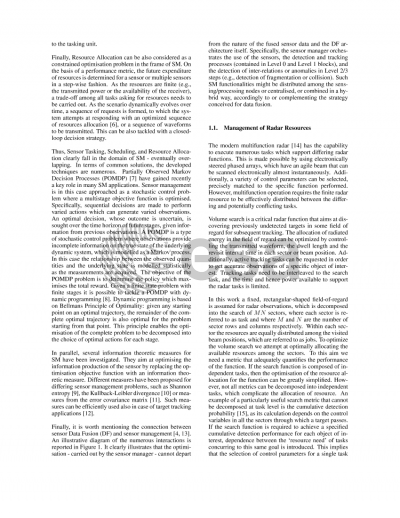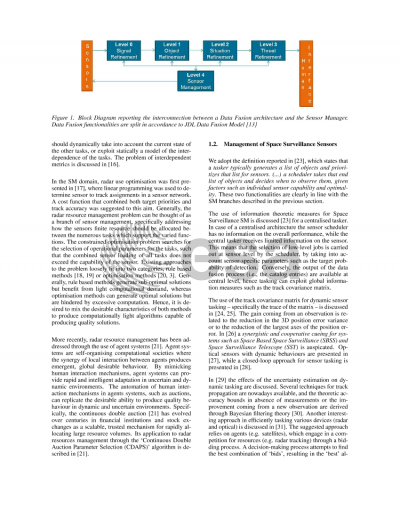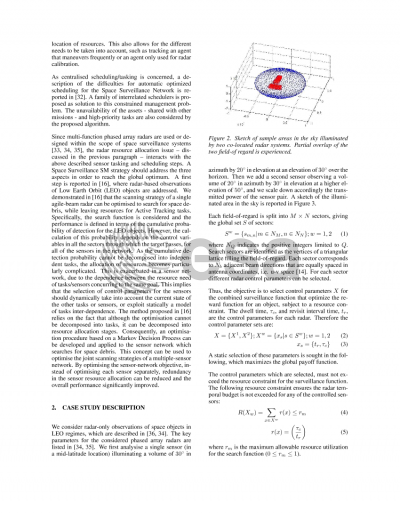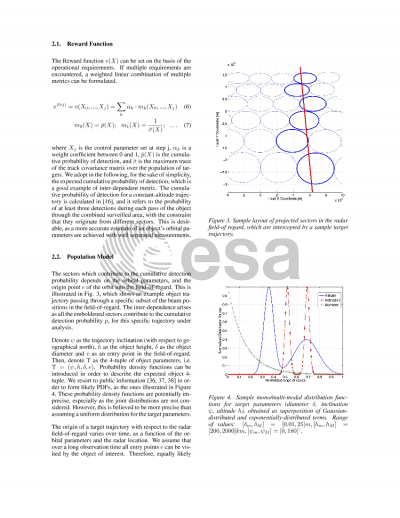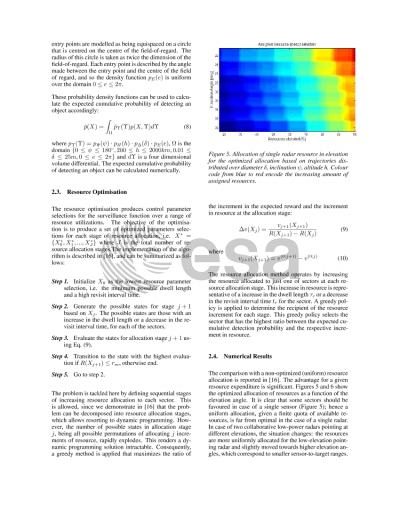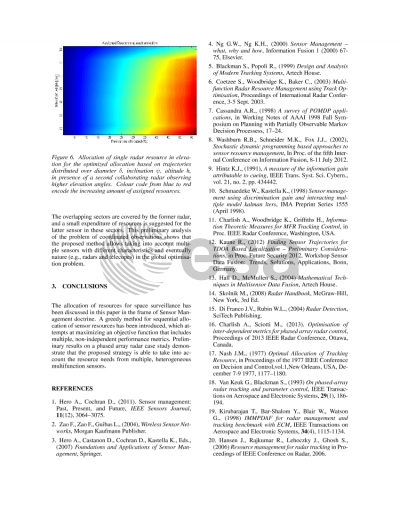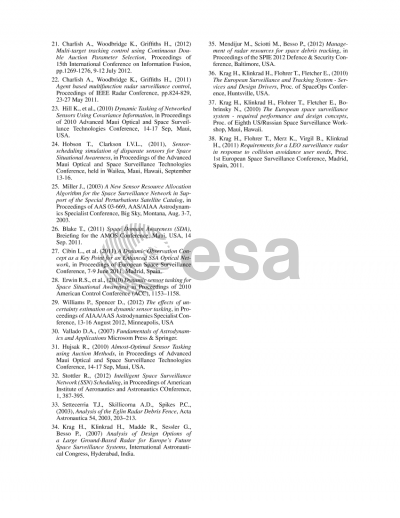Document details

Abstract
Optimal allocation of sensor resources is addressed in this paper in the frame of space surveillance application. Inspiration is taken from the optimal management of multi-functional sensors and netted surveillance sensors, for which the Sensor Management problem is often addressed as a Markov Decision Process. This approach allows determining the optimal decision at each discrete time instant by quantifying the expected payoff coming from the selected action. An action might be the assignment of the i -th surveillance task to the m -th sensor in the network ('tasking'), the selection of the i -th task at the k -th time slot ('scheduling'), or the activation of a specific sensor configuration for the completion of the i -th task ('resource allocation'). The common objective is the maximization of the global reward coming from the selected sequence of actions over a finite or infinite time horizon. This leads to a sequence of coordinated observations carried out by the sensor(s), which are determined statically or dynamically by the Sensor Manager. In this paper, the allocation of space surveillance resources is analysed as a management problem for sensor(s) with finite resources. The proposed allocation is driven by the operational requirements for space objects cataloguing, such as the object population coverage and the track accuracy. A sequential resource allocation strategy is formulated in order to cope with such inter-dependent, concurring performance metrics. The approach can be also extended to multiple sensors with different performance or nature. Promising results are demonstrated over a phased array radar case study.
Preview
